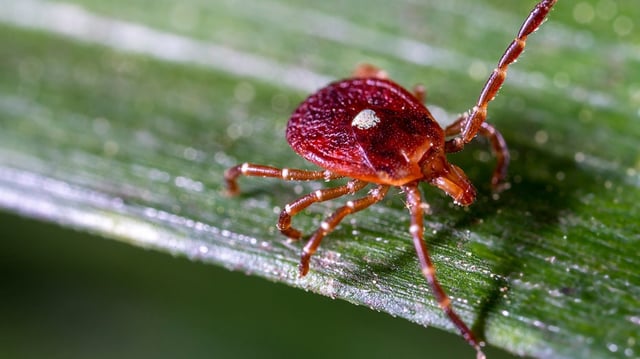Overview
- The CDC estimates up to 450,000 Americans may have alpha-gal syndrome, a tick-associated allergy that triggers reactions hours after eating red meat or other mammalian products.
- Martha’s Vineyard logged 523 cases last year, prompting restaurants to add alpha-gal–friendly options and retailers to stock more plant-based substitutes.
- Emergency departments across parts of the Midwest report summer spikes in visits linked to tick exposures, with some patients reacting to cooking fumes and everyday items containing animal byproducts.
- Local experts tie the Vineyard’s tick boom to a high deer density, with lone star ticks thriving in grassy and wooded areas on the island.
- Recent research highlights rising risk as tick ranges expand, and a July study suggests alpha-gal antibody levels can fall without new bites, though the pace and durability of improvement remain unclear.



